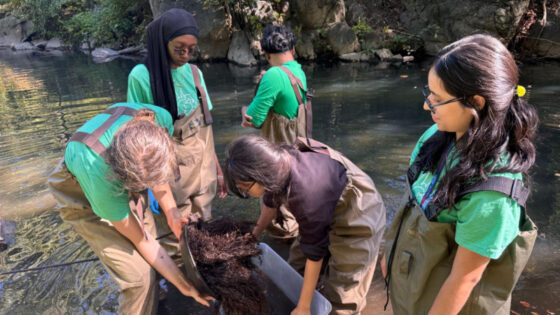Marcum-Dietrich, N., S. Kerlin, A. Hendrix, N. Sorhagen, C. Staudt, and Z. Krauss. 2021. The Journal of Environmental Education 52(4).
https://doi.org/10.1080/00958964.2021.1979451
Abstract
The Meaningful Watershed Educational Experience (MWEE) is a curriculum framework designed to support students’ Environmental Literacy (E-Lit) by promoting critical thinking about watersheds, but there is a paucity of empirical evidence in the literature to demonstrate its effectiveness in increasing E-Lit and a lack of understanding of what MWEE instructional activities best support E-Lit. The Teaching Environmental Sustainability — Model My Watershed (TES-MMW) middle school curriculum is a data-rich MWEE that promotes student analysis of local watersheds. This large-scale study was conducted in eight states across the United States of America from 2016 to 2018, with data from 38 teachers and 1,263 students ages 11–18. The data shows a positive impact on students’ E-Lit in watershed content and action. The study further suggests that four of the project’s curricular elements were most influential in promoting environmental action for students. These curricular elements follow the MWEE framework, and as such, the MWEE essential elements are valuable guides in curricular design to support students’ E-Lit development.


